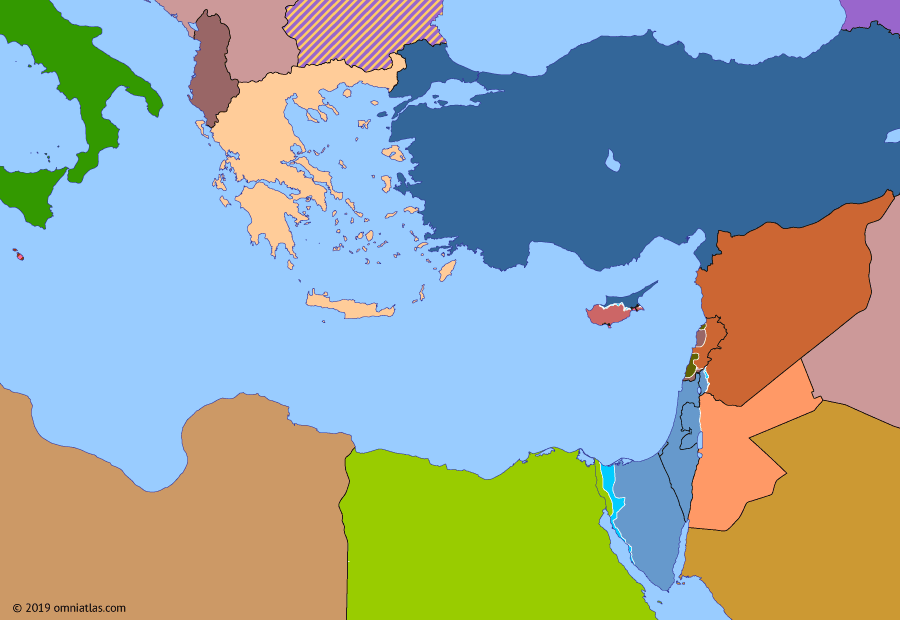Eastern Mediterranean 1976: Lebanese Civil War
15 November 1976
15 Nov 1976
Lebanese Civil War
22 Jul 1974 Turkish invasion of Cyprus
15 Nov 1976 Lebanese Civil War
19 Mar 1978 Operation Litani
25 May 1979 Israeli withdrawal from Sinai
22 Dec 1980 Battle of Zahlé
18 Aug 1982 1982 Lebanon War
5 Feb 1984 Multinational Force in Lebanon
19 May 1986 War of the Camps
15 Nov 1988 First Intifada
17 Sep 1991 Collapse of the Eastern Bloc
18 May 1994 Palestinian National Authority
14 Mar 1997 Anarchy in Albania
20 Mar 2001 Second Intifada
22 Jul 2006 2006 Lebanon War
14 Jun 2007 Hamas’s takeover of Gaza
16 Jan 2009 Operation Cast Lead
The influx of Palestinian refugees and militants into Lebanon—especially after the Six-Day War (1967) and Black September (1970)—destabilized the half-Muslim, half-Christian country. In 1975 civil war broke out, leading to the eventual division of the country between the Palestinian, Muslim, and leftist Lebanese National Movement (LNM) and the Christian and rightist Lebanese Front (LF). Wary of Palestinian successes, Syria intervened in support of the LF in 1976, but failed to bring the war to a conclusive end.
